Resources
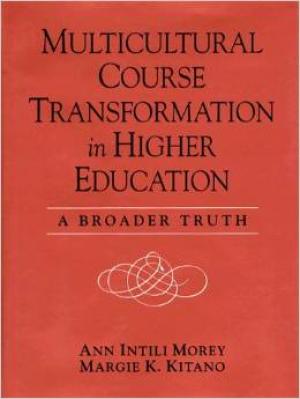
Responding to increasing enrollments of students of color, students with disabilities, students whose first language is not English, and students entering college in their mid-twenties or later, many colleges and universities are including multicultural issues in their course and curriculum preparation. Faculty members and administrators involved in multicultural initiatives will find here a suggested framework for making course and curriculum changes, along with specific examples and scenarios from a variety of disciplines. At the heart of the book is a two-dimensional model for infusing multicultural elements into a course or curriculum. The model identifies three levels of change (exclusive, inclusive, transformed) and four course components in which change can be applied (content, instructional strategies, assessment of student knowledge, and classroom dynamics). The authors suggest that instructors approach course change by focusing on one or more of these components and identifying a target level, depending on the instructor's multicultural goals and the nature of the discipline. The book draws upon the skills of experienced college and university educators to show how the model may be applied in specific disciplines and courses. This book is an indispensable, thoroughly documented resource. It will appeal to all post-secondary educators and administrators interested in creating an academic environment that reflects the needs of today's students and the reality of today's diverse society. (From the Publisher)

In this new volume, theologians reflect on sociological methods, explore social theories of the human agent, and offer a theological transformation of sociology. Spanning such developments as local, non-stipendiary ministries, the identification of the roots of church growth, and giving voice to gay and lesbian Christians, this collection of innovative essays provides a fascinating and important dialogue on how the seemingly disparate fields of sociology and theology can illuminate and enrich one other. This is essential reading for anyone concerned with the shifting dynamics of these two disciplines. (From the Publisher)

These probing essays, factual case studies and critical commentaries by thirty-nine prominent scholars, educators, seminary administrators and church executives together address the emerging issues of the globalization of theological education. What does it mean to minister in a world of both interdependence and polarization? How can leaders be prepared to build up a church able and willing to respond to the challenge of global witness and service? What new ways of teaching and learning can seminaries and congregations develop toward the ultimate goal of faithfully and effectively embracing all of God's creation? (From the Publisher)
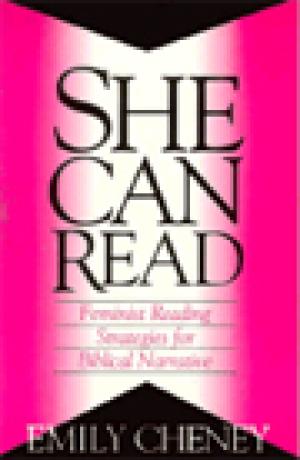
Using the research of feminist literary critics and building upon the work of feminist biblical scholars, Emily Cheney offers three strategies for women whose ecclesiastical traditions expect them to base their sermons on biblical texts, and for women who want their sermons to reflect a feminist consciousness and compassion. The strategies focus on gender reversal, analogy, and women as exchange objects, all tested on several texts without female characters from the Gospel of Matthew. A concluding section reflects upon what role the authority of the text plays when readers use these strategies. (From the Publisher)
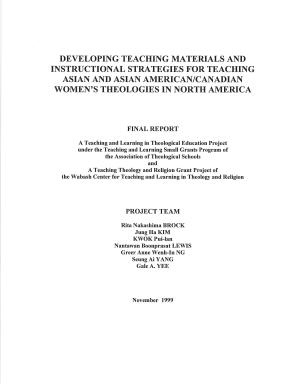
Analysis, resources, and recommendations by a colloquy of 7 Asian and Asian North American professors of religious and theological studies in largely white institutions. What impact does this isolation have on their functioning as faculty, and specifically in their attempt to introduce Asian or Asian North American perspectives into their respective theological disciplines? What extra constraints or requirements are placed on their struggle to teach as effectively and faithfully as they would like? And what about the dynamics of teaching primarily white or other non-Asian students?
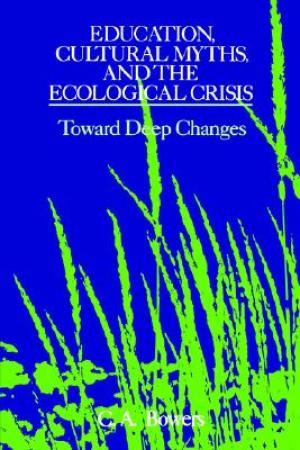
Bowers examines how the educational process perpetuates cultural myths that contribute to the ecological crisis, particularly how thought patterns from the past are reproduced through the metaphorical language used in the classroom. He suggests that a more ecologically sustainable ideology is being formulated by such writers as Aldo Leopold and Wendell Berry. (From the Publisher)
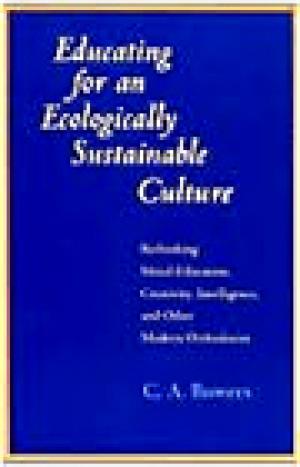
This book is a wake-up call for environmentalists who need to consider how current educational ideals and practices undermine efforts to create a more sustainable future. It is also a wake-up call for educators who continue to base their reform efforts on the primacy of the individual, while ignoring the fact that the individual is nested in culture, and culture is nested in (and thus dependent upon) natural ecosystems. Bowers argues that the modern way of understanding moral education, creativity, intelligence, and the role of direct experience in the learning process cannot be supported by evidence. (From the Publisher)